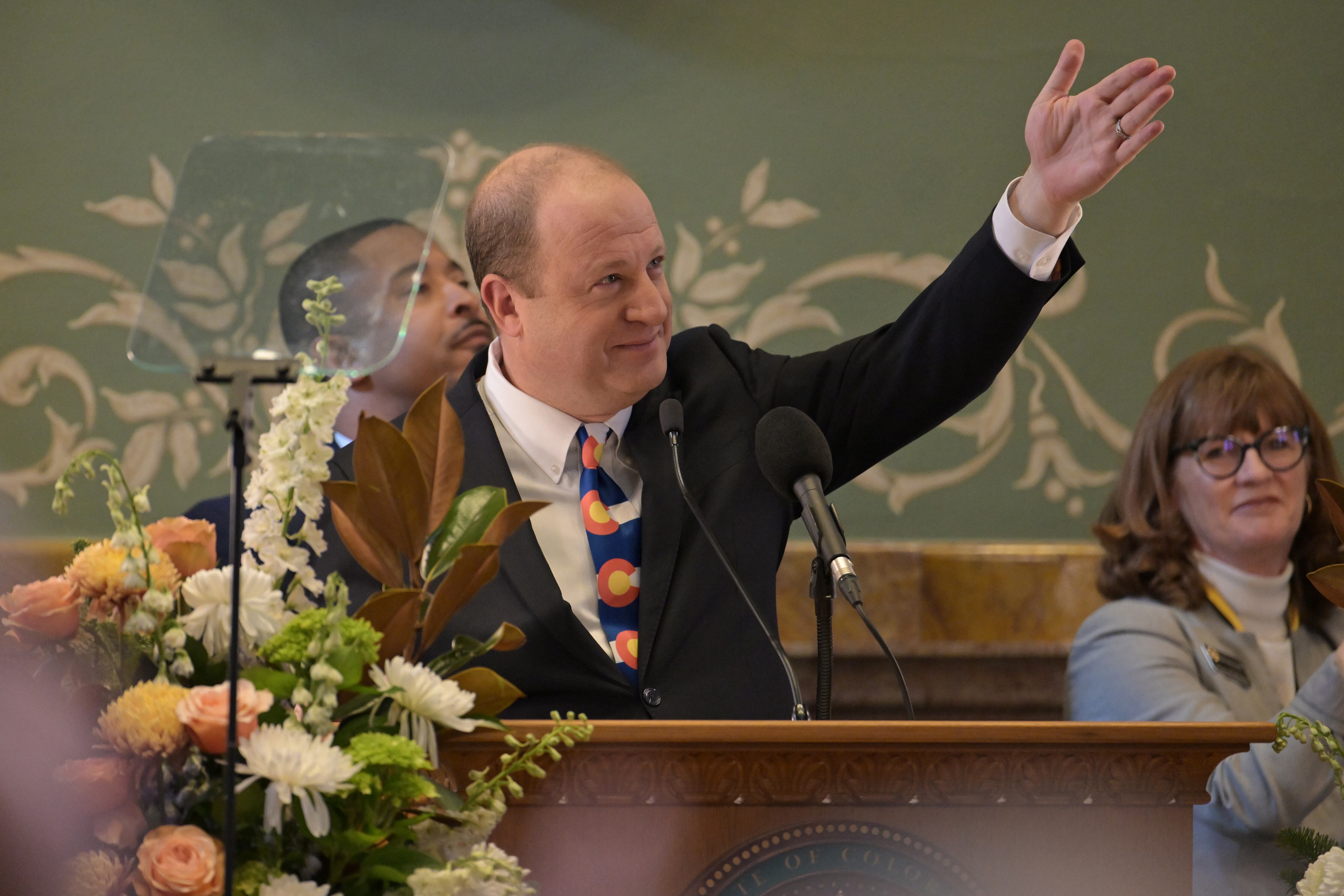Sign up for Chalkbeat Colorado’s free daily newsletter to get the latest reporting from us, plus curated news from other Colorado outlets, delivered to your inbox.
Gov. Jared Polis doubled down on his call to change how the state calculates school districts’ state funding during his State of the State speech on Thursday.
In his speech, Polis repeated his proposal to use student enrollment from just a single year, instead of Colorado’s current method of using a four-year average, to fund schools.
“Colorado is an outlier when it comes to school funding — with our current system funding based on students who were enrolled four years ago,” Polis said. “It is past time to eliminate this antiquated system that funds empty chairs rather than actual students.”
The issue can quickly become technical but carries major significance for districts’ bottom lines. The change, which Polis first introduced in his November budget proposal, has been criticized by some district leaders with declining student populations. They said such a change would greatly reduce their state revenue.
The issue has also split lawmakers on how to proceed forward, especially because many are worried about cutting into recent K-12 investments.
As Polis said, most states don’t average enrollment for the purpose of their budgets. But several have moved to Colorado’s model since the pandemic and in light of declining enrollment.
Eliminating the method of using a four-year average would save Colorado money in a tight budget year. Yet some school leaders and advocates have said that could also trigger large, single-year budget dips. District leaders also like averaging enrollment counts because it helps them prepare for budget declines over a greater length of time.
One recent study on Colorado school funding said the state should consider using either a single-year enrollment count or a three-year average, whichever is greater for each district.
In a news conference after his speech, Polis said he’s open to a discussion about different options, but reiterated he wants to make sure the state is funding students where they are — not where they were several years ago.
Lawmakers have said they want to figure out the best route forward to balance the state budget while also reducing the impact to districts.
Colorado House Speaker Julie McCluskie, a Democrat, said in a recent interview that she’s studying how schools would be impacted by Polis’ proposal.
“I really appreciate some of the numbers that I’ve seen initially from districts with the elimination of the averaging provision,” she said. “I want to explore and better understand those impacts.”
Senate Minority Leader Paul Lundeen, a Republican, said after the governor’s speech that he’s advocated for a single-year count for 13 years.
“I don’t think we should pay for empty seats,” Lundeen said, although he also said he’s willing to work toward a compromise.
Meanwhile, House Education Committee Vice Chair and Majority Co-Whip Matthew Martinez, a Democrat, said he’s most concerned about how changes would impact rural districts, especially those in the San Luis Valley in southern Colorado. He said the new school finance formula invests money into rural schools that he serves, and he doesn’t want to see schools negatively affected.
Members of the Joint Budget Committee, which crafts the budget, are still figuring out how to address the issue.
During Monday’s Chalkbeat Colorado legislative event, state Sen. Jeff Bridges, the Joint Budget Committee’s chair, said lawmakers are floating many ideas about how to lessen the impact of changing to a single-year enrollment count.
“For me, at the end of the day, it’s about what’s the impact on kids,” he said.
Jason Gonzales is a reporter covering higher education and the Colorado legislature. Chalkbeat Colorado partners with Open Campus on higher education coverage. Contact Jason at jgonzales@chalkbeat.org.





